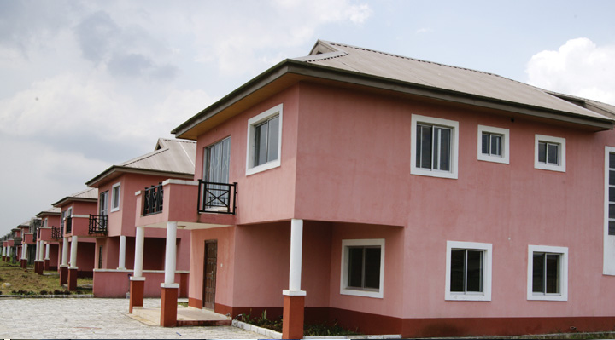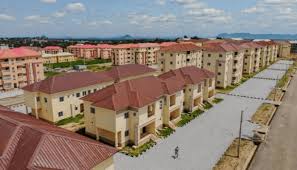While residents earn monthly or daily incomes, existing rent control law in most states prescribes six months or yearly rent payments. Several states like Lagos, Anambra, Plateau and Rivers have promulgated laws overtime to stabilise the rental accommodation and ensure that their cities provide affordable housing for lower and middle-class residents as well as stop eviction of tenants by landlords.
Experts believe that the protection afforded by this law is not intended to deprive landlords of profit from their investments, but keep living costs affordable for lower-income residents.
For instance, the Lagos Tenancy Law 2011 made it unlawful for the sitting tenant to offer or pay rent in excess of one year for a yearly tenant and six months for a monthly tenant. The penalty for both landlord and tenant involved in such an arrangement is a fine of N100, 000 or three months imprisonment. But in reality, this is not enforced.
Findings show that the provisions of the rent control laws in Nigeria have been held in disobedience for many years due to the shortfalls in supply of new housing units.
Already, the housing sector is battling with the challenges of the un-liberalised process of land acquisition, high taxation on building materials, the high-interest rate for housing development loans and lack of favourable contract enforcement mechanism among other issues.
An estate surveyor and valuer, Mr Kunle Awolaja said that rent control won’t be effective in Nigeria as housing delivery is done mostly by the private sector.
Besides, Awolaja stated that a lack of mortgage makes it difficult for rent control law to positively impact the housing industry.
He said, “It’s actually the forces of demand and supply in the market that ought to regulate it. If there are shortages in supply, you are going to have a high demand and then the price will reflect the forces of demand and supply.”
A lecturer at the Department of Estate Management, University of Lagos, Dr Austin Otegbulu explained that the ineffectiveness of the existing rent control law was because it is considered a misnomer and aberration in the property market. He stressed that attempting to control what ‘you don’t provide’ will amount to failure.
“That law or edict is honoured more in the negative side. Most landlords don’t obey it, it has created a black market in the housing sector.”
Dr Otegbulu noted that the challenge for the agents may not be in trying to rent out houses but when the tenants move in and refuses to pay rents. He said should the tenant be sued or if asked to pay the agreed rent, he can insist on paying the controlled rent and that could blow up a big case in the court.
He called on the federal government to ensure improvement in the provision of social housing, mortgage, production of local building materials to cushion the effect of cost-push inflation, and fixing the exchange rate among other measures.
The Chairman, Niger State branch of the Nigerian Institution of Estate Surveyors and Valuers, Dr Kemiki Adebowale said that before the enactment into law by some state governments, it has always been a general belief that it would work because it just like creating a law for a system that is not so organised and full of informal sector or informal market.
According to him, “Most of the housing stocks that we have are owned by the private sector so it is difficult to regulate them even though you say a room shouldn’t go more than N20m or N10m for example, they will keep their house and people that need it will go back and beg them later to even give it out more than that.
“In Lagos where such law was introduced sometimes ago, it was even sectionalise, exempted some properties in Ikoyi, Ikeja, certain parts of Victoria Island and others. Nobody is even aware of that law as at today, everybody is doing their own business. If you can afford what I am selling, you bring your money and if you can’t you go for another like a free market.”
He pointed out that what the Nigerian government should be interested in at every material time is in boosting the supply of housing, stressing that when government strengthen the supply, the prices of accommodation in the country will fall.
Essentially, he said the government should look at the various platforms to strengthen the supply of housing stocks by making loans available, credit facilities at a reduced price just like the government has done for the Agricultural sector.
Dr Adebowale affirmed that the challenge the law posed initially for housing agents when it came into effect and was referenced by renters, has, however, been surmounted by the elapse of time.
















